Alien returns with Ridley Scott at the helm and fear at its heart
Ridley Scott has returned to the thrilling franchise that first petrified audiences almost 40 years ago.
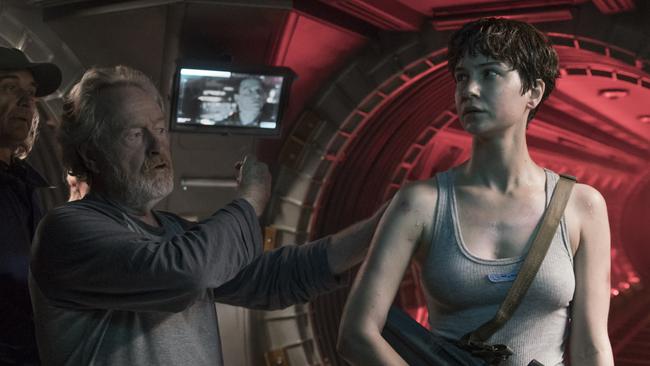
‘In space, no one can hear you scream” was the tagline for Alien, that brilliant combination of science fiction and horror that burst on to the screen in 1979. Almost 40 years later, its director, Ridley Scott, returns to the franchise with Alien: Covenant. And one of the first times he got his new cast together, he recalls, he wanted to hear them scream.
The film is set in 2093, and it takes its name from the Covenant, a spacecraft on a colonising mission. A crew of 15 is in charge of the colonists, setting out together on the long journey to a distant planet.
Scott, fast-talking and soft-spoken, says he decided to try something different with the actors playing the crew. “One of the difficult parts of my job is breaking the ice so that everyone feels secure and they are going to enjoy it, and they don’t feel like an outsider.”
On an impulse, he took them into a big sound recording room and told them, “I’m going to stand each one of you in front of an individual mic, and we’re going to read the whole thing through from top to bottom, bloodcurdling screams and all. We’re gonna do it now, no rehearsal.
“It was a lot of fun. We got a sense of the whole story, and we found out who was a good screamer and who wasn’t.” It was a first for the actors, he says, “And it was a first for me too.” It’s important for him to try different approaches, he says. “You’ve got to keep things fresh.”
Things aboard the Covenant don’t go according to plan. The seven-year journey is interrupted; the crew is woken from hyper-sleep by a freak incident, and there’s an accident with tragic consequences. A transmission from an unknown source leads them to investigate another destination, a seemingly benign planet whose existence they had been unaware of. A landing mission takes them there, to a place of extraordinary natural beauty and unnatural silence: it brings them in contact with all the shapeshifting terrors that we have come to expect from the Alien universe, plus a few new ones.
Alien (1979) was Scott’s second feature, a tale of trauma and transformation in a confined space. His next film was Blade Runner, another landmark work that explored, in a very different way, some of the themes of existence, artificial intelligence and what it means to be human that emerge in Alien: Covenant.
He didn’t direct the sequels to Alien that were released between 1986 and 1997: they were made by James Cameron (Aliens), David Fincher (Alien 3) and Jean-Pierre Jeunet (Alien: Resurrection). The common factor in these films was Sigourney Weaver as the heroic Ripley, warrant officer turned warrior, whose struggles against the metamorphosing aliens take on mythological proportions.
Scott made his first return to the franchise five years ago with Prometheus, a new and unexpected instalment in the Alien universe. Its events take place before those of the first film, and it sets up an oblique, sometimes bewildering relationship to what followed.
Alien: Covenant begins with a prologue featuring two key figures from Prometheus. After the credits, it takes us on the journey of the Covenant, 10 years after Prometheus: the new film illuminates some of its predecessor’s mysteries, but is a much closer relative to Alien. It has a character clearly reminiscent of Ripley: she is Daniels, played by Katherine Waterston (Inherent Vice, Fantastic Beasts and Where to Find Them). Scott describes Waterston as “a special gal and a special actress”. He saw her in Inherent Vice, Paul Thomas Anderson’s adaptation of the Thomas Pynchon novel, he says, “and I thought, blimey, this one’s courageous, and just wonderful with dialogue”.
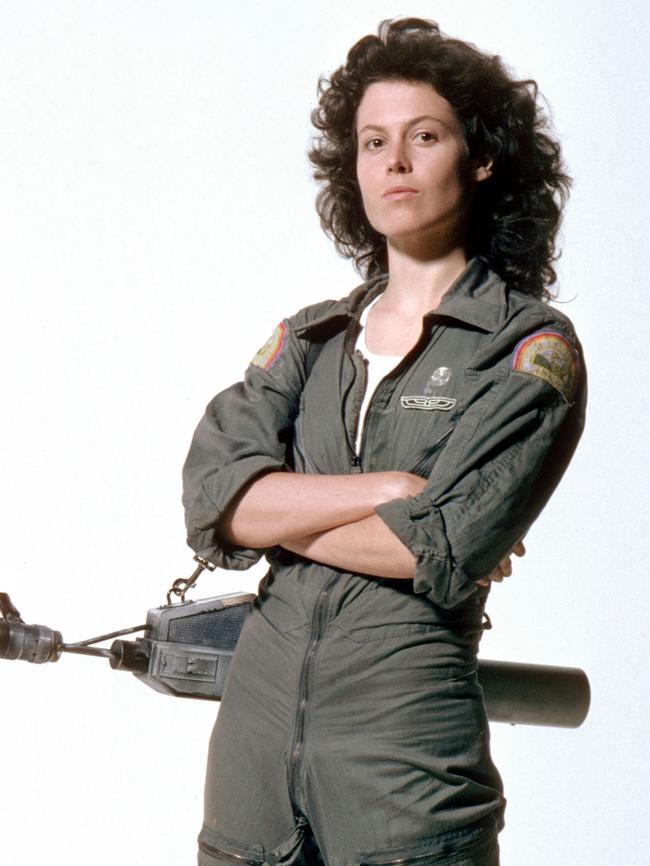
Casting is everything, he says. “I spend a lot of time on it because once I cast I don’t tend to do an overt lot of rehearsal. I’ve discovered over the years that actors, good actors, know what they’re doing and they want to stay fresh. You can rehearse things to death.
“Film is a partnership medium and my relationship with actors is always a partnership.”
Even so, many things about the relationship have changed, he says. Once upon a time, he wouldn’t have done the exercise in the sound studio, he says. “Thirty years ago I would have driven everyone crazy by telling them the whole f..king story. And they’d be lying there dead, saying, ‘I’ve only got two scenes, I don’t need the whole story.’ It’s always been out of respect to the actor that I’ve wanted to give them more information than they necessarily need. Now it comes down to spending individual time with them.
“If I cast a really good actor, it means I’m well taken care of by them, because once we’ve talked, and they’ve gone off and thought about it and practised and done their thing, and from my point of view what I love always is to be surprised. My biggest compliment is, ‘Good god, I’d never thought of that.’ With great actors you can get it down to two or three takes — there’s none of this 90-take crap.”
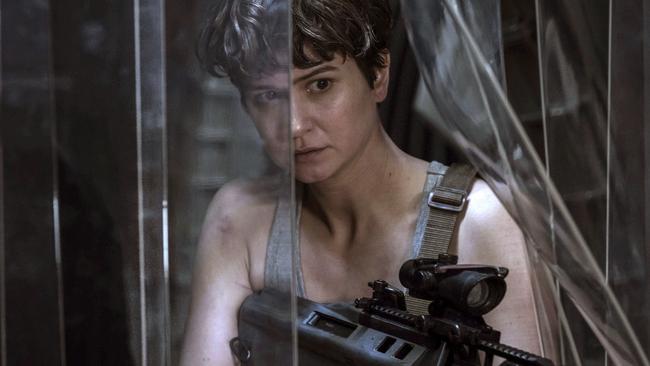
Scott designs his films to allow for moments of surprise during the shoot — he likes to leave room for actors to improvise. He painstakingly prepares his own storyboards, a practice that helps him leave space for new ideas. “By storyboarding, I’ve got the geometry of everything in my head, before I even begin, and this frees me up to improv as well because if it doesn’t work I can always return to plan.”
Shortly before the release of Alien: Covenant, audiences have been prepared for some of its events and characters. The studio has released two prologues, specially devised sequences that give clever yet slightly deceptive introductions to the new film, teasing combinations of direction and misdirection.
An almost five-minute scene titled Last Supper, released in February, showed the crew of the Covenant getting together for a meal just before departure: there’s a sly reference to a celebrated dining sequence in the original Alien. Among the crew members we meet is brash pilot Tennessee (Danny McBride). Scott says he told the actor to reference the gung-ho bomber pilot from Stanley Kubrick’s Dr Strangelove. Also evident in this short scene is the distinctive combination of empathy and authority that Waterston brings to the role of Daniels.
The second, much briefer prologue, The Crossing, released at the end of last month, suggested that in Alien: Covenant we would meet the two main characters from Prometheus left alive at the end of the film: Dr Elizabeth Shaw (Noomi Rapace) and the android David (Michael Fassbender). Fassbender also appears in Last Supper, playing a character who looks remarkably like David. It turns out he has a double role: on the Covenant, he is Walter, an upgraded version of David.
The Alien world is shot through with cinematic, pop culture and literary references, some fleeting, some heavily accentuated. In Alien: Covenant, the literary elements include Shelley’s sonnet Ozymandias, a work that is all about power and its loss, Scott says, and the way “all things will crumble. All things will end, fundamentally.” Milton’s Paradise Lost, also referenced in Prometheus, is another a touchstone. One of the more fleeting ones is a quote from Carl Sandburg’s poem Fog: screenwriter John Logan is a Sandburg admirer, Scott says.
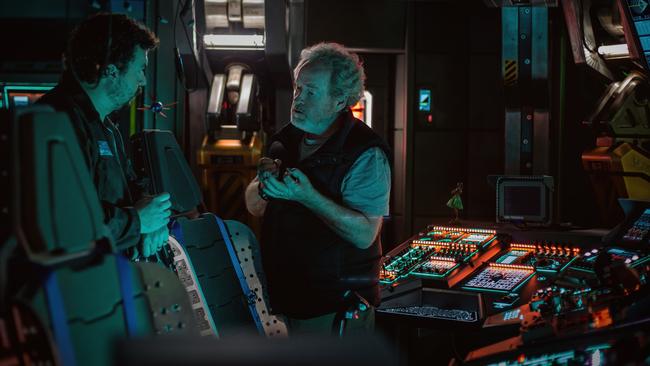
Many cultural references, from Wagner to Lawrence of Arabia and Milton, flow through the figure of David, the AI given too many human qualities for his own good, or the good of others — not only emotion but also creativity. “If you want a harmless AI, you don’t want emotion,” Scott says. “And creativity walks around the edge of emotion.”
Scott is happy to discuss influences and references. Of Kubrick, a name he mentions several times, he says: “Stanley is probably my favourite filmmaker, so I steal from him all the time.” One of his favourite examples of this, he says, is a key figure in the history of artificial intelligence: HAL, the computer system that controls the spacecraft in 2001: A Space Odyssey. “People don’t connect HAL to AI, you see, they miss the bloody point.”
There are elements of Alien: Covenant that have connections to other films Scott has made — one of the more unexpected ones is a link to Gladiator (2000). It has to do with the spacecraft’s sails, features of its design that are both beautiful and practical. Scott recalls that when he was making Gladiator, he needed a way to shade the Colosseum, and went to a high-end sailmaking company that made him sets of huge sails supported by titanium cables. Using them, he says, “gave me a shadow over the Colosseum, which I think is what the Romans used to do, by the way, to keep it out of the sun”. For the design of the Covenant, he says, he returned to the notion of sails, but this time they’re used to collect energy. It’s not a fanciful idea, he says, but a functional one.
Scott likes his sets, props and objects to be tangible and tactile, and special effects are the same, as far as is practically possible. Discussing a key scene of alien eruption in Covenant, he says: “We did all that physically, with a very good special effects guy I’ve got. You find that if you shoot it properly, you can get a lot of it; if it’s not quite right it can be improved digitally, but you’ve still got something to cut to, rather than waiting for months for that shot to be done. And I think at the end of the day [it] is cheaper.”
Australian actor Benjamin Rigby, in his first blockbuster role, plays a member of the Covenant crew. He was struck by this embrace of the tactile, and by the level of detail and preparation. Rigby plays a character called Ledward, a member of the Covenant security team.
Before production started, the members of the security team — all Australian actors — went on boot camp together to build up their strength, to give them the skills they needed to be convincing in their tasks and to create a sense of camaraderie.
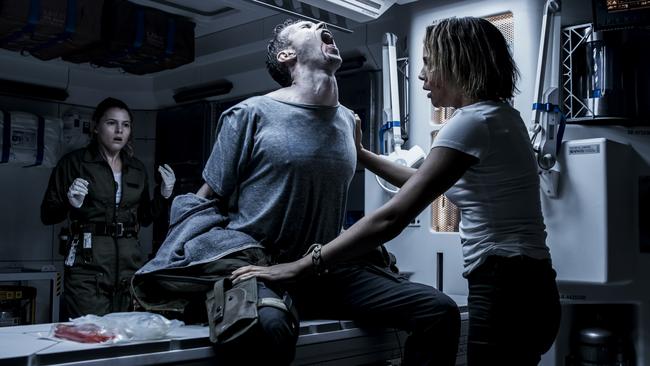
Rigby recalls being told by Scott, “Come prepared, come with ideas, because we can work with that.” He was aware of what this might mean. “Everyone I had worked with or who knew of Ridley’s style said that he loves to play and to improvise. I love that. It’s the scariest and most fun thing simultaneously for an actor.”
Rigby had special preparation for one of his scenes, a memorable moment that involved a certain amount of stunt training beforehand, and prosthetics and makeup for the scene itself, which took days to shoot. “It was intense and very physically demanding,” Rigby says. “It took a lot of focus and conserving of energy.”
Scott’s enthusiasm for the Alien series and its implications is undiminished. He’s interested, he says, in the ideas that underpin the works, in pondering the nature of creation and in entertaining the notion that there is life beyond Earth. “When you walk outside at night, if you’re in a nice desert landscape or there’s a clear sky, and you can see a galaxy … I’ve never believed that we’re the only ones in that galaxy. To say that we’re exclusive is frankly bloody silly.”
And the journey is not over, cinematically speaking. The sequel to Alien: Covenant, Scott says, “is being written now and with a bit of luck we’ll be shooting that in about 18 months. Maybe in Australia, because we had such a good time. I loved Sydney, I loved the whole experience of making the film there.”
That may not be the last instalment, Scott adds. “Once you open up this universe,” he says, it’s hard to leave. “I’m not sure yet, I know where I’m going next, but I’m beginning to enjoy it so much I would hate for it to end there.”
Alien: Covenant opens nationally on Thursday.



To join the conversation, please log in. Don't have an account? Register
Join the conversation, you are commenting as Logout